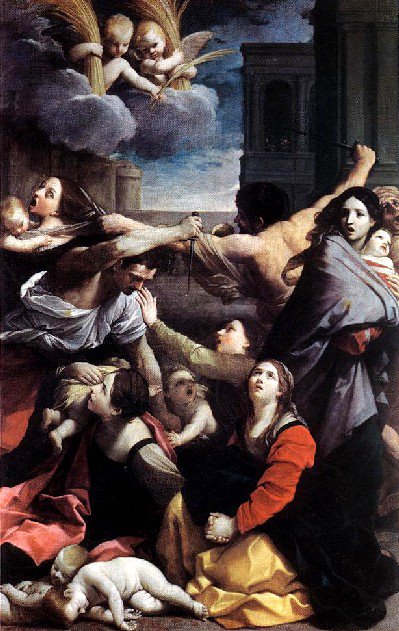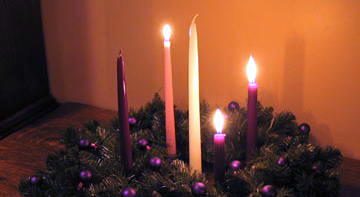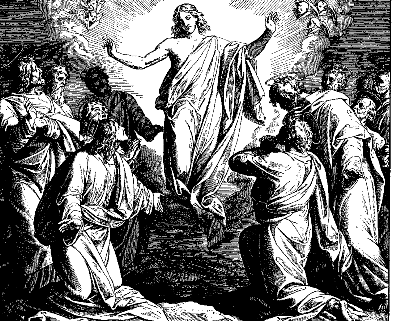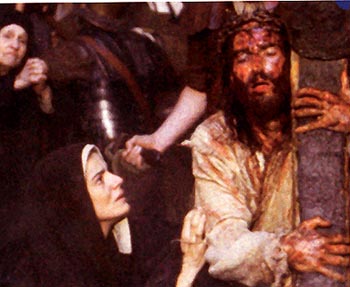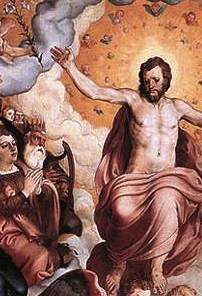Today’s first
reading (
Isaiah 35:1-10) is one of those Scriptural passages that flow like a symphony of exuberance and joy. Indeed, a part of this passage is found in Handel’s
Messiah.
Unfortunately, some of us may turn our ears from these happy noises, especially during a time of the year when songs of cheerfulness and even traditional religiosity bombard us every time we venture into a department store just for a pair of shoes.
Happy happy, joyful, joyful, yadda yadda yadda.
We may have become so accustomed to bitterness, disappointment, and long dark sin that the light of these verses makes us ill or makes us feel absolutely nothing at all.
But there is more than light and joy in these verses: there are also memories and echoes of pain, emptiness and terror.
A desert, a parched land, and a wide empty space without shelter.
Hands that cannot hold, legs that cannot stand, and hearts that feel drained of blood.
Burning sands, thirsty ground, and a place where a stumble means death at the jaws of scavengers.
A world devoid of any path or direction: full of stupid people, evil people, and loathsome predators.
Isolation, silence, heartbreak, and a feeling of loss that goes deep into the bone.
That is the background of today’s first reading: not a childlike cloudcuckooland, but a real world of pain and emptiness – probably even worse than whatever most of us are feeling right now.
The writer of today’s first reading was familiar with pain, emptiness and fear. He lived in a time of war and genocide, a time when the leaders of God’s people were uneven at best, a time when the people themselves were staggering away from God and lurching into oblivion.
It probably does not take a Scripture scholar to see the parallels with our own time, or even with our individual lives: especially when our lives feel worse than bad.
A desert, a parched land, and a wide empty space without shelter.
Hands that cannot hold, legs that cannot stand, and hearts that feel drained of blood.
Burning sands, thirsty ground, and a place where a stumble means death at the jaws of scavengers.
A world devoid of any path or direction: full of stupid people, evil people, and loathsome predators.
Isolation, silence, heartbreak, and a feeling of loss that goes deep into the bone.
The writer of today’s first reading knew what these things felt like, but he also knew the touch of God’s grace: he had felt it in his own life.
He had experienced God’s presence and he had felt the power of God’s grace cleanse him of all his bitterness, disappointment, uncleanliness, fear, and sin. He had felt the power of God’s grace surge within him and propel him to do the greatest things that he could ever have imagined in his life.
He knew what God could do and he knew what God would do.
And so he opened himself to the reality of the power and the joy of God.
And God invites you and me to do the same.
The desert and the parched land will exult;
the steppe will rejoice and bloom.
They will bloom with abundant flowers,
and rejoice with joyful song.
The glory of Lebanon will be given to them,
the splendor of Carmel and Sharon;
They will see the glory of the LORD,
the splendor of our God.
Strengthen the hands that are feeble,
make firm the knees that are weak,
Say to those whose hearts are frightened:
Be strong, fear not!
Here is your God,
he comes with vindication;
With divine recompense
he comes to save you.
Then will the eyes of the blind be opened,
the ears of the deaf be cleared;
Then will the lame leap like a stag,
then the tongue of the mute will sing.
Streams will burst forth in the desert,
and rivers in the steppe.
The burning sands will become pools,
and the thirsty ground, springs of water;
The abode where jackals lurk
will be a marsh for the reed and papyrus.
A highway will be there,
called the holy way;
No one unclean may pass over it,
nor fools go astray on it.
No lion will be there,
nor beast of prey go up to be met upon it.
It is for those with a journey to make,
and on it the redeemed will walk.
Those whom the LORD has ransomed will return
and enter Zion singing,
crowned with everlasting joy;
They will meet with joy and gladness,
sorrow and mourning will flee.
 A Penitent Blogger
A Penitent Blogger

